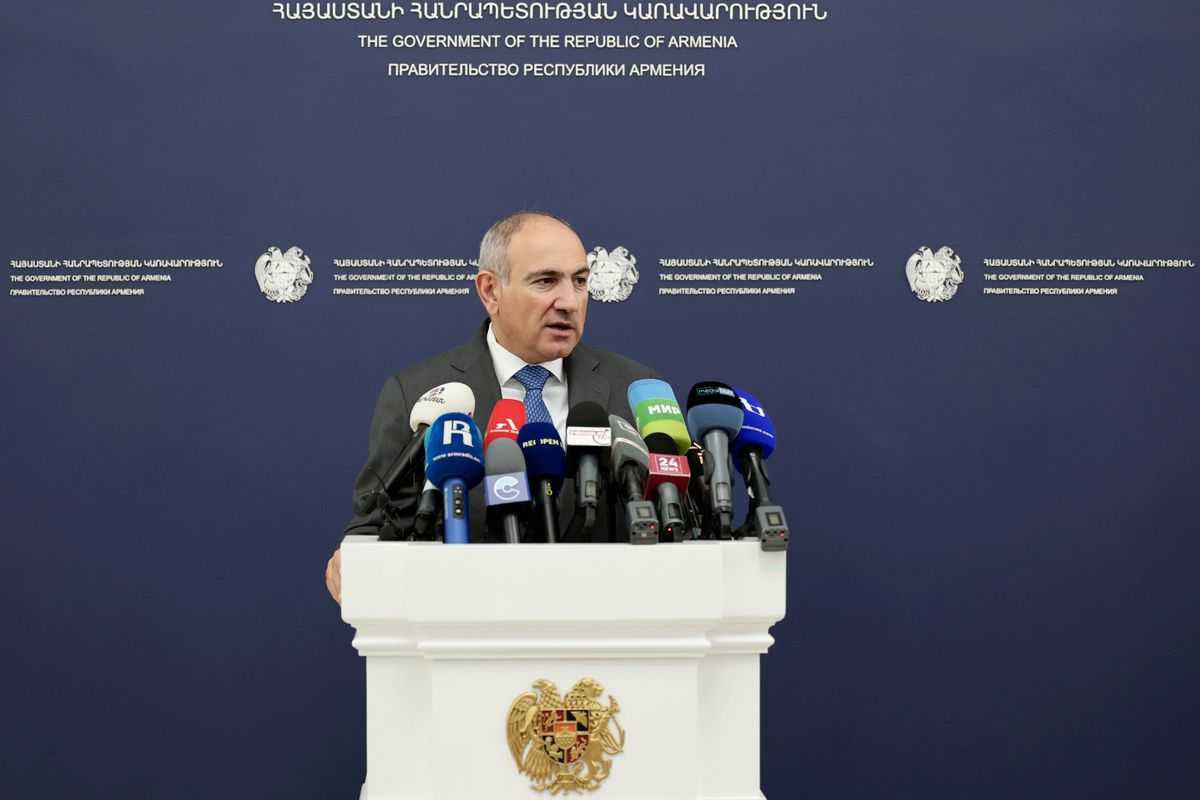
Armenia’s Foreign Ministry has confirmed that the country is refusing to send a representative to serve as Deputy Secretary General of the Russia-led Collective Security Treaty Organisation (CSTO).
The announcement on Friday follows repeated criticism from Yerevan of the Russian-led military pact’s inaction in recent conflicts with Azerbaijan.
Armenia led the organisation for the past two years. Its term ended late last year, with the presidency passing to Belarus.
Following treaty protocol, Armenia’s representative was supposed to take over the position of Deputy Secretary General in 2023.
However, Armenia ended its term as president of the CSTO with senior government figures expressing loud criticism of the pact, particularly in relation to its inaction during the two-day war between Armenia and Azerbaijan in September 2022.
The treaty’s terms state that an attack on one member state should be considered an attack on all, but the organisation neglected to offer any practical assistance after Azerbaijan launched an attack on Armenia’s territory in September. Instead, it offered only to send a fact-finding mission after the fact.
At the start of this year, the dissatisfaction with the alliance grew more explicit, as Armenia’s Prime Minister Nikol Pashinyan announced that planned CSTO military drills would not take place in Armenia.
He added that Armenia was still waiting for ‘concrete’ answers as to what the Treaty’s ‘zone of responsibility’ was.
‘The absence of their response presents a fundamental problem for us’, stated Pashinyan.
Growing tensions
Russia and other CSTO member states are bound to assist Armenia militarily, but remained mostly silent and absent during the Two-Day War in September 2022.
The war, which took place within Armenia led to Azerbaijan gaining control of territories within Armenia’s borders, and left around 200 dead from the two countries.
[Read more: Explainer | What happened in Armenia and Azerbaijan on 13–14 September?]
Shortly after the war, senior figures from the Armenian government, including Prime Minister Nikol Pashinyan expressed dissatisfaction with the orgainsation’s inaction, but ruled out leaving the pact.
After the announcement that a European Union monitoring mission would be deployed to Armenia, the CSTO announced that it was also ready to send observers, later accusing Armenia of ‘preferring’ the EU over the CSTO.
Armenia’s dissatisfaction with Russia has grown in the months since the blockade of the Lachin Corridor began. The sole road connecting Nagorno-Karabakh to Armenia is technically under the control of Russian peacekeeping forces stationed in Nagorno-Karabakh, but has been blocked by Azerbaijani protesters since 12 December 2022.
While Russian peacekeepers claim to be discussing issues relating to the blockade of the corridor with Azerbaijan, no tangible results have been seen in almost three months.
Criticism of the organisation has also been prominent at protests in Yerevan. At a rally in November, protesters demanded that Armenia ban the CSTO ‘as they banned Margarita Simonyan’, referring to Armenia’s entry ban on the ethnic Armenian Russian propagandist and journalist, who has made prominent anti-Armenian statements.
On Friday, Kremlin spokesperson Dmitry Peskov stated that Russia had a ‘negative attitude’ to entry bans levelled against Russian media figures and members of parliament. This followed new reports that ethnic Armenian Kremlin-aligned journalist and media manager Aram Gabrelyanov had been denied entry to Armenia. Armenia’s authorities have not yet commented.
Last autumn, the media reported that Russian MP Konstantin Zatulin had been banned from entering Armenia.








